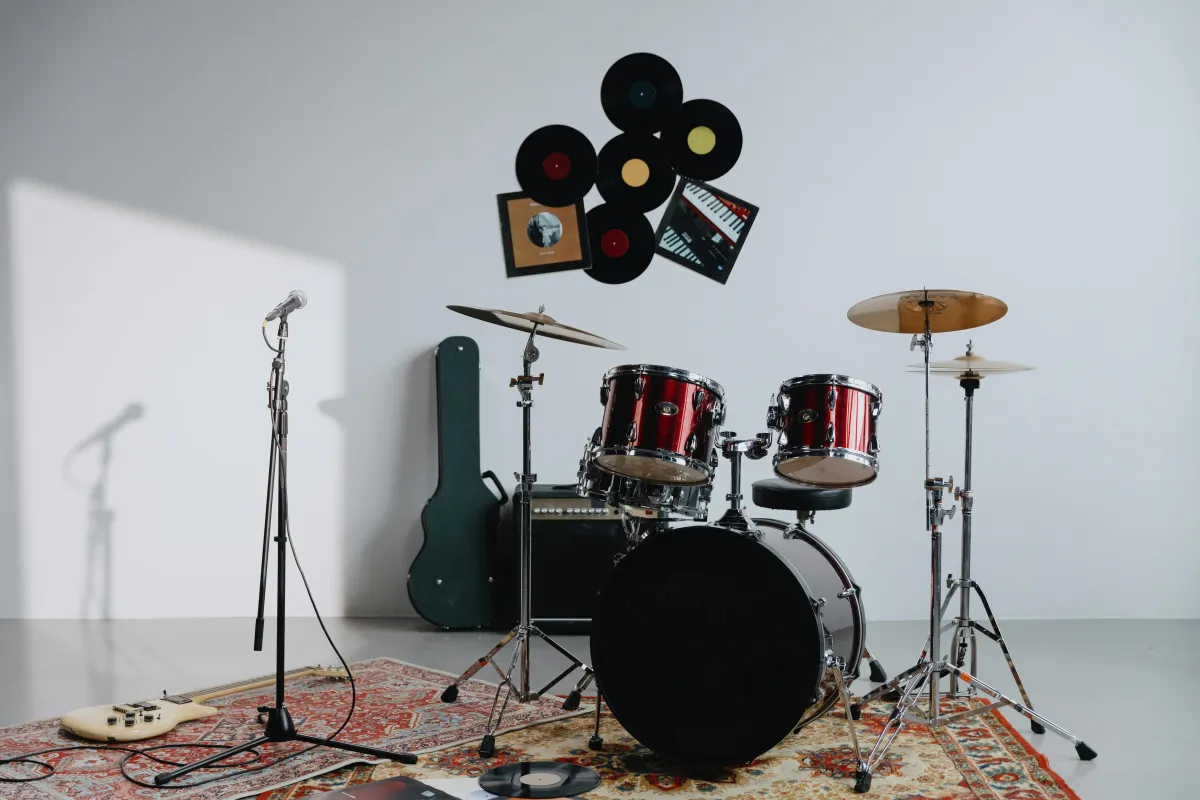
The Gift of Music-Making: Why Learning an Instrument Restores Your Mind at Any Age
If you've ever watched someone play piano and thought, "I wish I could do that, but I'm too old to start," it's time to reconsider. Learning to play a musical instrument isn't just about creating beautiful sounds. It's actually one of the most powerful ways to strengthen your brain, improve your mood, and give yourself a creative outlet that brings lasting joy. Whether you're 25 or 65, your brain is ready to embrace this beautiful challenge.
The Cognitive Workout Your Brain Craves
Learning an instrument might seem daunting, but that level of challenge is exactly where the brain benefits lie. Think about what happens when you play: you're reading music, coordinating your hands in complex patterns, listening to your output, and adjusting accordingly. This isn't just music-making. It's a comprehensive cognitive workout.
These complex processing activities stimulate several parts of your brain simultaneously, which over time enhances your overall cognitive ability. Interestingly, the collection of nerve fibers that connects the two sides of the brain, known as the corpus callosum, is larger in musicians according to research.
Your neuroplastic brain is constantly forming new neural connections and rewiring existing ones as you practice. This means that every time you sit down with your instrument, you're literally upgrading your brain's capacity for learning. For women feeling mentally stagnant or worried about cognitive decline, this offers tremendous hope.
Strengthening Memory Through Music
Mastering an instrument requires focused attention and significant memory recall. You're exercising both short-term and long-term memory function in ways that create benefits far beyond music. This mental workout can improve your ability to remember names, follow complex instructions, and stay focused during demanding tasks.
For busy moms trying to keep track of multiple schedules or women feeling scattered by daily demands, the memory benefits of musical training can translate into real-life improvements in organization and mental clarity.
The Emotional Healing of Creating Music
We've explored how listening to music heals your mind, but creating your own music takes these benefits even deeper. When you play an instrument, you're triggering the release of feel-good neurochemicals including dopamine, serotonin, and oxytocin, while simultaneously reducing cortisol levels.
The process of making music activates your limbic system, the part of your brain that regulates emotions. This allows for creative expression and provides a healthy outlet for difficult feelings. Research has revealed an easing in the symptoms of various mental health issues including generalized stress, anxiety, and even depression.
For women carrying heavy emotional loads or feeling spiritually disconnected, learning an instrument can become a form of prayer without words, a way to express what your heart can't articulate.
Long-Term Brain Protection
Perhaps most encouraging is that regularly practicing an instrument strengthens neural connections in ways that provide long-term protection. You're actually reducing your risk of developing age-related neurological diseases, including dementia and Alzheimer's.
Research has confirmed that it's never too late to learn something new: older adults can reap all of these amazing rewards too. This means that whether you're in your 30s, 50s, or beyond, your brain is ready to embrace this challenge.
Simple Ways to Begin Your Musical Journey
You don't need to become a concert pianist to experience these benefits. Here are gentle ways to start:
Choose an Instrument That Speaks to You: Whether it's piano, guitar, ukulele, or even harmonica, pick something that brings you joy to look at and hold.
Start with Simple Goals: Aim to learn one song you love rather than trying to master complex pieces immediately.
Use Online Resources: There are wonderful beginner tutorials available that let you learn at your own pace in the comfort of your home.
Consider Group Classes: Many community centers offer beginner music classes that provide both instruction and social connection.
Practice Self-Compassion: Some days will feel easier than others. Be patient with yourself as you would with a dear friend learning something new.
A Creative Expression of Faith
There's something deeply spiritual about creating music. Throughout Scripture, we see music used to worship, celebrate, and express emotions too deep for words. When you learn to play an instrument, you're developing a new way to connect with God and express your heart.
For women feeling creatively stifled or spiritually dry, music-making can become a wellspring of renewal. It reminds you that you're created in the image of a creative God who delights in beauty and expression.
Moving Forward with Melody
If you've been feeling mentally exhausted or longing for a creative outlet, consider this gentle invitation to explore music-making. Start small, be patient with the learning process, and trust that even a few minutes of practice can begin to restore what feels depleted.
Your brain was designed for growth and creativity at every age. Learning an instrument isn't just a hobby. It's actually a form of brain health stewardship that brings joy, connection, and cognitive benefits that last a lifetime.
For more ways to support your brain health through new learning, explore our comprehensive resources. If you're ready for personalized support in creating practices that restore your mental clarity and joy, consider a free clarity call.
